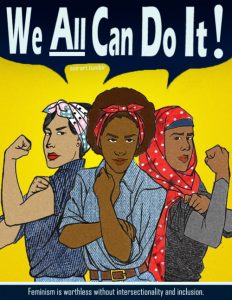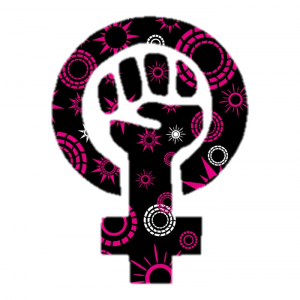
http://www.berry.edu/womens_studies/myths/
I have always considered myself to be a feminist. Feminism to me simply meant believing and advocating for equal rights for both men and women or in simple terms; gender equality. This is a topic that I am interested in but have never really had a chance to explore. It therefore did not come as a surprise to me when I decided to take a course on Decolonizing and Feminist perspectives from Local to global as my arts elective. Every single lecture, it occurs to me just how broad and dynamic feminism is and how our backgrounds greatly shape our views on feminism.
I found the readings assigned in week 2: Decolonizing Feminism and Neoliberalism to be quite interesting. In her article, Nancy Fraser argues that feminists have obliviously been active players or contributors to neoliberalism; a new form of capitalism. She goes ahead to mention how the following three ideas were co-opted by neoliberalism and are used to exploit women in the name of feminism.
- By critiquing family wage ( Male breadwinner-female homemaker ideal) we contributed to more women joining the labor force especially low waged labour and this took a toll on the family and poverty levels increased
- As feminists championed for acknowledgement of non-economic injustices like reproduction oppression and domestic violence we forgot to critique the political economy thus prioritizing the personal/identity over the equally important economy
- critique of welfare state paternalism has been used by governments to reduce macrostructural efforts which have much greater positive impact than say microcredit to women in low income areas that feminists advocate for.

http://everydayfeminism.com/
This article caused major controversy with scholars like Brenna Bhandar and Denise Ferreira da Silva drafting a response to Nancy Fraser titled “White Feminist Fatigue Syndrome” where they argue and I quote “the persistent claim to universalism, which is the core of this whole feminism, renders the thoughts and work of black and third world feminists invisible over and over again”. Simply put, Bhandar and da Silva argue that Fraser is approaching this issue from a white feminist perspective, which is okay considering that she is one, except she fails to acknowledge her privilege or bias implying that her arguments apply to all kinds of feminism or women which is simply not the case. Bhandar and da Silva bring light to the fact that African American women have had movements such as the wages for house work campaign that was a form of resistance to the family wage and social and economic forces that collude to damage African american children. They also allude to the vulnerability of indigenous women to sexual violence due to the stereotypes on them. All these efforts by non white feminists and are thus overlooked when feminists like Fraser allude to universalism in their works.
Both writers make some valid points but I tend to lean more towards Brenna and Bhandar`s article which I can relate to in so many ways. As a minority in Canada I have more often that not felt excluded in major discussions or heard points/ideas that I simply could not relate to. This article thus reinstated the importance of simply being aware and acknowledging the bias that we might have because that alone does go a long way.

http://www.feministsforchoice.com/
I however do agree with Fraser that we need to champion for participatory democracy because it goes without saying that two heads are better than one. it is also critical for us to not get lost in the wake of neoliberalism till we forget the key reasons why we call ourselves feminists, and the struggle that our great grand parents and early feminists went through to advocate for equality of the sexes and rights such as equal pay, as was well demonstrated in the film. We have come a long way but a lot still has to be done since women are still marginalized in our society today.
